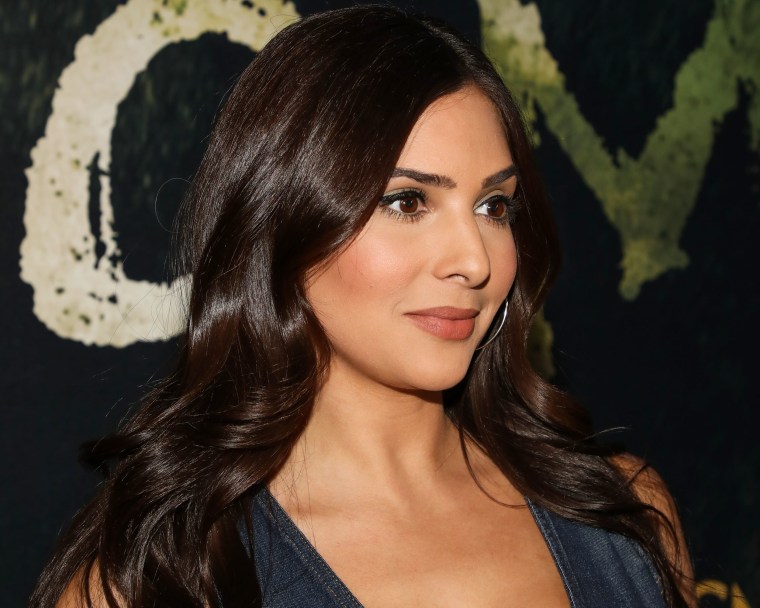This story discusses suicide. If you or someone you know is in crisis, call 988 to reach the Suicide and Crisis Lifeline. You can also call the network, previously known as the National Suicide Prevention Lifeline, at 800-273-8255, text HOME to 741741 or visit SpeakingOfSuicide.com/resources for additional resources.
Thirteen years. Almost 365 days a year. Countless hours on set, filming anywhere between 50 and 60 scenes a day. I can’t keep track of the birthdays, anniversaries and holidays I missed, all because of “Days of Our Lives.” When I look back, “Days of Our Lives” was the days of my life.
And it was worth it, because I got to do what I loved, every single day: act. Although it was a demanding and grueling job, I did amazing things while playing Gabi Hernandez — things I never would’ve been able to do on any other set, like being kidnapped eight times or causing a gas explosion that might destroy the entire town or doing my own stunts and getting tackled or blowing up a person’s wedding.
That’s what made walking away earlier this year such a difficult decision.
When I told my mom, sister and husband — who I call my “tripod” — I was thinking of leaving the show, they understood. They’d seen me come home from work crying because I couldn’t shake off something bad that had happened to Gabi. They’d seen me memorizing 60 pages a day and feeling like my head was going to explode. Their support is monumental and it’s what makes me feel safe enough to take this risk.
I did it for me and the dreams that surpassed “Days of Our Lives.” I did for my family: past, present and future. I did it for my dad, in honor of the person he thought I could be — but never could see me become.
Soon into my time on “Days of Our Lives,” I got the news no one ever wants to receive. I was in the parking lot of a dollar store with my mom, who was on the phone, when she started screaming. On the other line, she learned my dad, her ex-husband, had died by suicide.
We were shocked and devastated. My dad had been a living whirlwind and human wild card. When he was on dates with my mom, women would leave him their numbers. He was an exuberant man; everyone wanted his attention. At that point, I didn’t realize his smile masked what I now think was a lifetime of depression.
When he died, I handled it the best way I could as a 19-year-old, which was … not to tell anybody. A couple of days later I returned to set and life moved on. I buried my grief, I buried my anger. I buried my sadness. I put on a smile for a long time.
My instinct was silence. Things got better, for me, when I started talking about my dad’s death. In fact, I talk about it all the time now! Some people get weird with me because I don’t have to be very close to someone to tell them about my father’s death, but not making it taboo is therapeutic for me.
Other things that helped: Therapy. My husband, who encouraged me to think beyond guilt and my last phone call with my dad, and the memories I cherished. “Days” was impactful, too: When my character became a mom, I took a parenting class to prepare for the role, where I reflected on how the parenting done to me has molded me into the adult I became. Meeting other families impacted by suicide through my work with the American Foundation for Suicide Prevention has helped me move forward as well.
I think losing my dad made me a more empathetic person. His suicide changed the way that I interact with people. I want them to know that I care. I want them to know they are wanted, important, needed.
I had always spoken to my dad about my dreams. He knew my ultimate goal is to create amazing stories and cultivate characters — to be on the big screen. That was part of why I walked away. He didn’t stay to see his dreams realized — the depression took over. I need to reach mine for him, and me, and our family.
“Days” was undeniably a dream job. But I hope it’s the first of many dream jobs. I want to leave a legacy for my family, honoring the sacrifices that my Cuban immigrant parents made for me so that I could pursue those dreams.
Now, in Florida, when I look at the water, I think of my dad. I feel his embrace. And I know: He would be so proud of me.
As told to Elena Nicolaou
